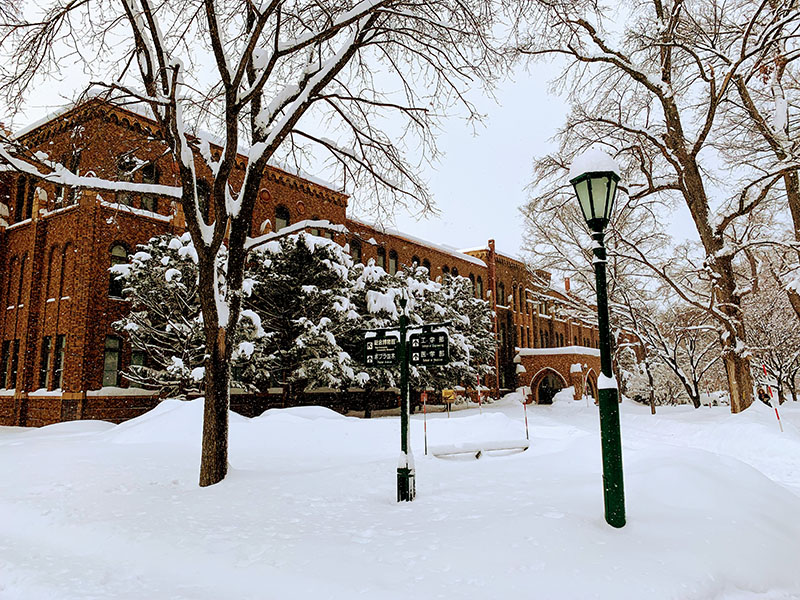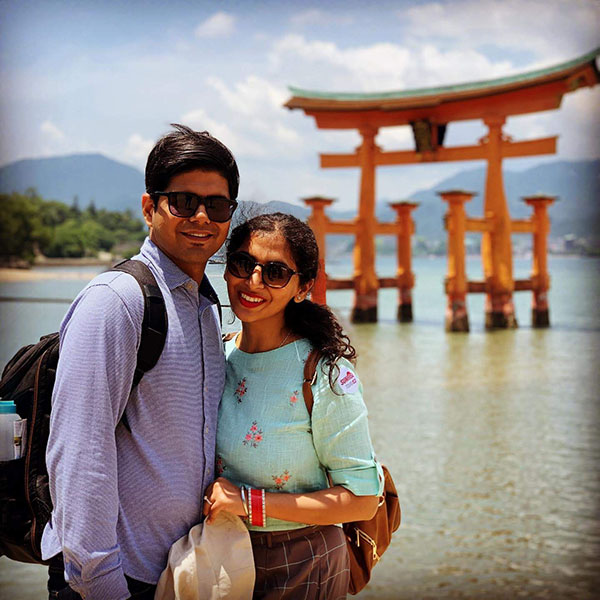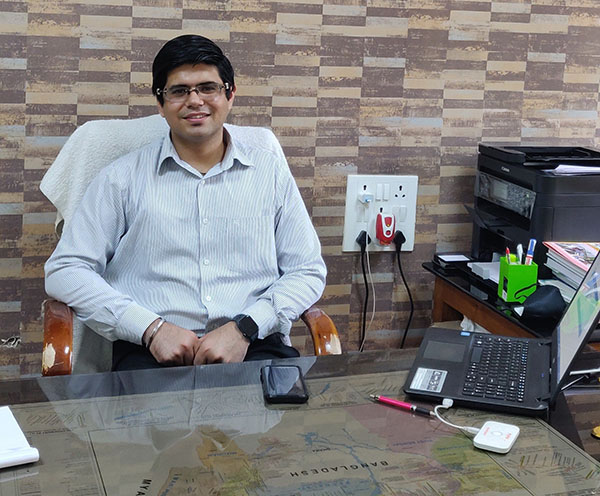Paras MEHENDIRATTA
 India
India
Master's course graduate September 2019
People say that good opportunities come a very few times in life and we should recognize and seize them with every chance we get. And that’s what I did when I applied for Master’s in Japan. It wasn’t a very easy decision. I was already settled with plans to get married & be working for the Government of India in Ministry of Railways. I had to come out of my nest and leave everything behind, even my fiancé, postponing marriage plans.
So, I prepared for the test and interview and drafted a research proposal. It was a new experience for me as I didn’t have any research experience. I was sure to work on materials, but where and how were the big questions. So, I went on looking for labs working on materials and talked to seniors already present in Japan and decided Hokkaido University to be my first choice for many reasons. First, I wanted to see how it is to live in an area where it snows. Being in a hot tropical country it’s impossible to have snow in plains, so I wanted to enjoy my time in Sapporo winters. Secondly, I thought that Sapporo is a city of appropriate size. It is not as big as Tokyo or Osaka where it takes a lot of time in travel and subways are full of people and not as small as any town like Fukui where it may become difficult to live as an international student. Thirdly, when I saw e3 website, it immediately felt so easy to navigate and find relevant information, and it seemed to me that English Education Program at Hokkaido University was very well organized as compared to other universities. So, I applied to Prof. Takashi Nakamura’s lab and I was lucky to get through.
Now, let’s fast forward to my arrival in Sapporo. I was the first regular international student in my lab. In fact, the first ever Indian in the lab including exchange students. So, nobody had any idea how to deal with a foreigner. It was so difficult to recognize Japanese faces and remember names. And the most challenging thing was language. Only one lab member who had stayed in USA was good at English. However, my lab members gave me a wonderful welcome party and specially arranged vegetarian food for me. Although, initial days were difficult. I faced problems like Jet lag, language barrier, entirely different food, so many procedures related to moving into Japan etc., but everybody was supportive. All three professors were always concerned about my wellbeing and kept asking me on regular intervals whether I needed something.

Soon, I got adjusted and became busy with my course work and research. People in my lab became more open with me and we started to have broken conversations in Japanglish. But things really changed when I moved to the lab room J205 which had practically all the lab members. I got more chances to interact with my lab-mates and we all got to know each other well. Eventually, I realized my lab was the best lab. All members adjusted themselves multiple times only to accommodate my preferences. For example, since I’m a vegetarian, for lab parties they had always chosen a restaurant where I could eat something. The environment which our lab member and professors had maintained was wonderful. We studied together till late night, helped each other in research, played on play-station and baseball together, boozed, chatted till midnight over stupid topics, trolling each other etc. My whole image about Japanese people changed and we all became so friendly with each other.
Coming to research, my research was related to High Strength Steel. I worked on finding the characteristics of crack propagation on a particular type of steel which is used in High-Speed Railways, Space structures etc. My research will eventually lead to life time estimation of the steel in such applications and our lab result can be then directly used in the field for use without further experimentation. I have also been Spring-8 twice, in Hyogo Prefecture as part of my lab research. It is one of the five large synchrotron radiation facilities in the world. In Spring-8 we were trying to detect and analyze internal cracks in steel and titanium which is first of its kind initiative in the world. These cracks cannot be analyzed with normal instrumentation and thus our research is of high importance and has cited all over the world by many researchers.
My experience in Japan has helped me in lot of ways in my professional life. Besides my technical skills from my Master’s Degree, immersing myself in Japanese culture has taught me many important lessons for life, like punctuality, sincerity, humbleness etc. I have been using Japanese technique of workplace organization of 5S i.e., seiri (整理), seiton (整頓), seisō (清掃), seiketsu (清潔), and shitsuke (躾) which has made material storage at my workplace very organized and has led to huge savings in material purchases by predicting our consumption pattern and reducing wastages. Overall, Japan has made me a better human being and hopefully I’ll be able to serve people of my country in a much better way.
I wish I could go back in time - all my experiences including studying, food, sightseeing, cultural interaction, etc. had been so wonderful and I would say that these will be one of the best two years of my life. I would always love and miss my time in Japan.


- 15.01.2024
- Alumni /


